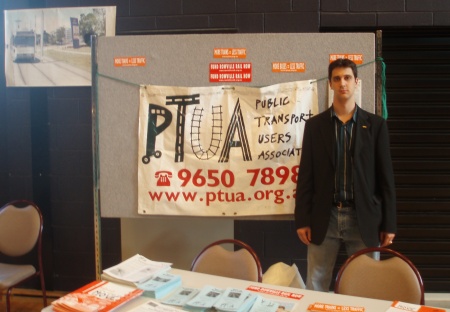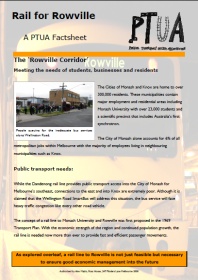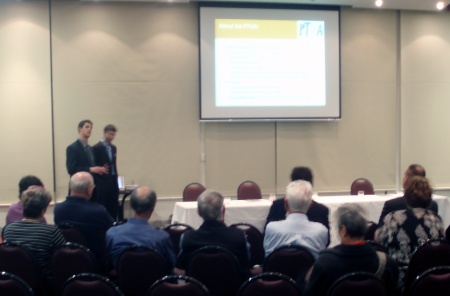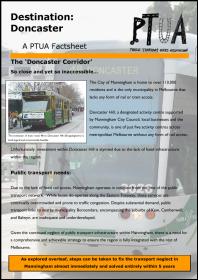As part of its State Election coverage, Fairfax Community News (which owns the Maroondah Journal) has reported on a series of election issues. The Maroondah Journal, along with the other Fairfax Community Newspapers, has reported on the issue of public transport.
Better public transport would result in a lower level of car dependence, thus mitigating rising traffic congestion and the burden of higher petrol prices.
Unfortunately rather than provide a vision, the government chose instead to neglect its earlier promises, such as the Rowville feasibility study and the South Morang and Cranbourne rail extensions, and instead has released a plan that contains spin rather than actual substance.
The Public Transport Users Association was so unimpressed with the plan that it called on Mr Batchelor [The Transport Minister] to resign.
Vice-President Alex Makin said the document did not tackle the root of Melbourne’s transport tangle – its fragmented make-up.
The State Government has neglected to provide Melbourne with much needed train and tram extensions or to overhaul the bus network to ensure a frequent, direct and readily available bus network.
Ultimately there has been a failure to integrate transport and planning meaning that Melbourne is not being provided with a frequent, reliable and readily available public transport system.
The PTUA wants a single controlling body and a rethink on buses – the only transport most Melburnians have access to – to better co-ordinate the system.
“Melbourne’s bus servies are likened to a tangled mess of spaghetti,” Mr Makin said. “The more frequent services are, the easier it is to coordinate with other services and the easier for people to use.”
The Government seems content to tell two-thirds of Melbourne to wait up to an hour for bus services. The Opposition which has stated that “public transport can be vote-changer” must pledge to deliver a comprehensive public transport system that actually delivers the broken promises of the Bracks Government.




